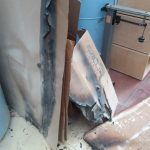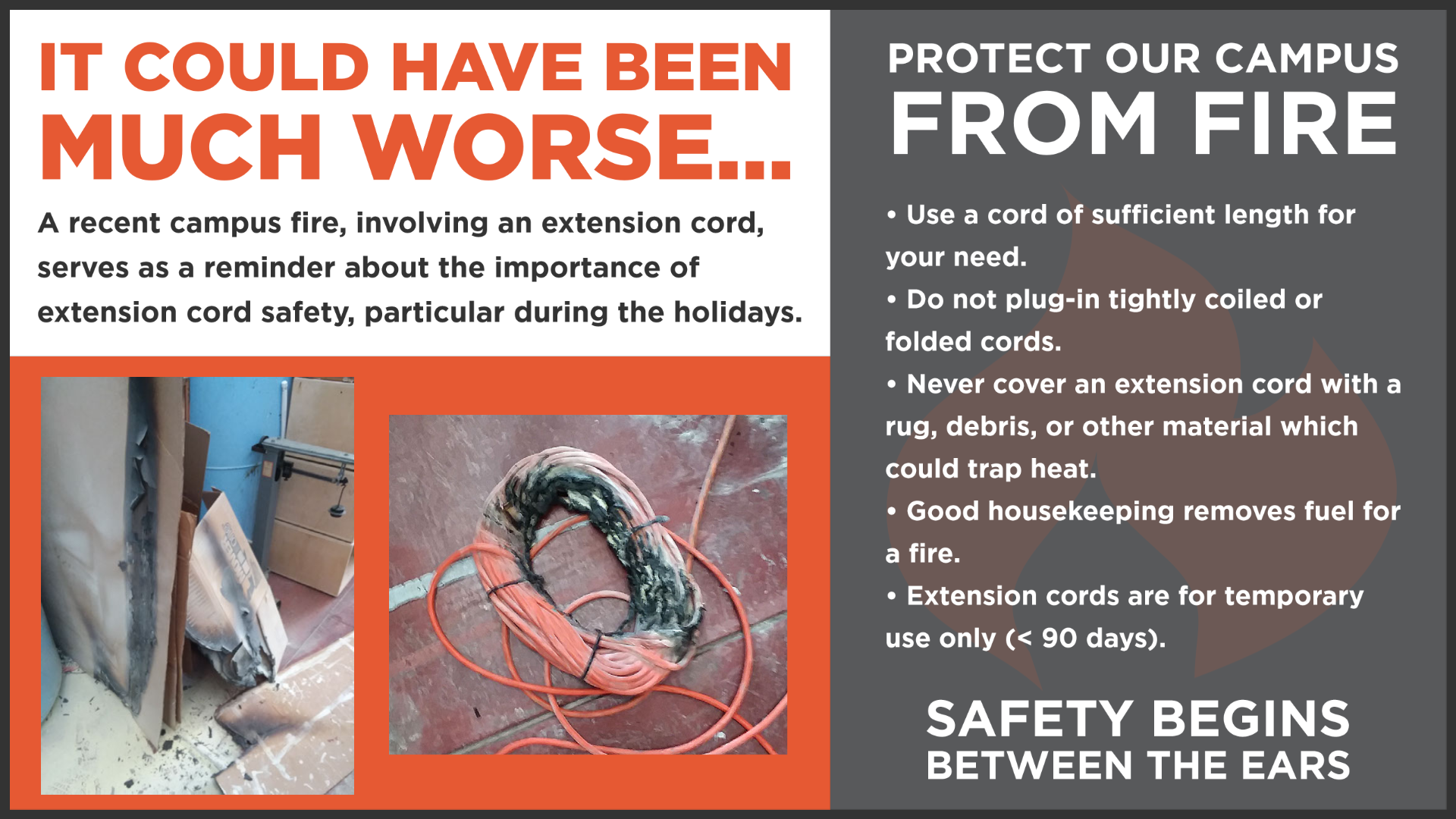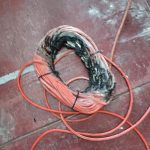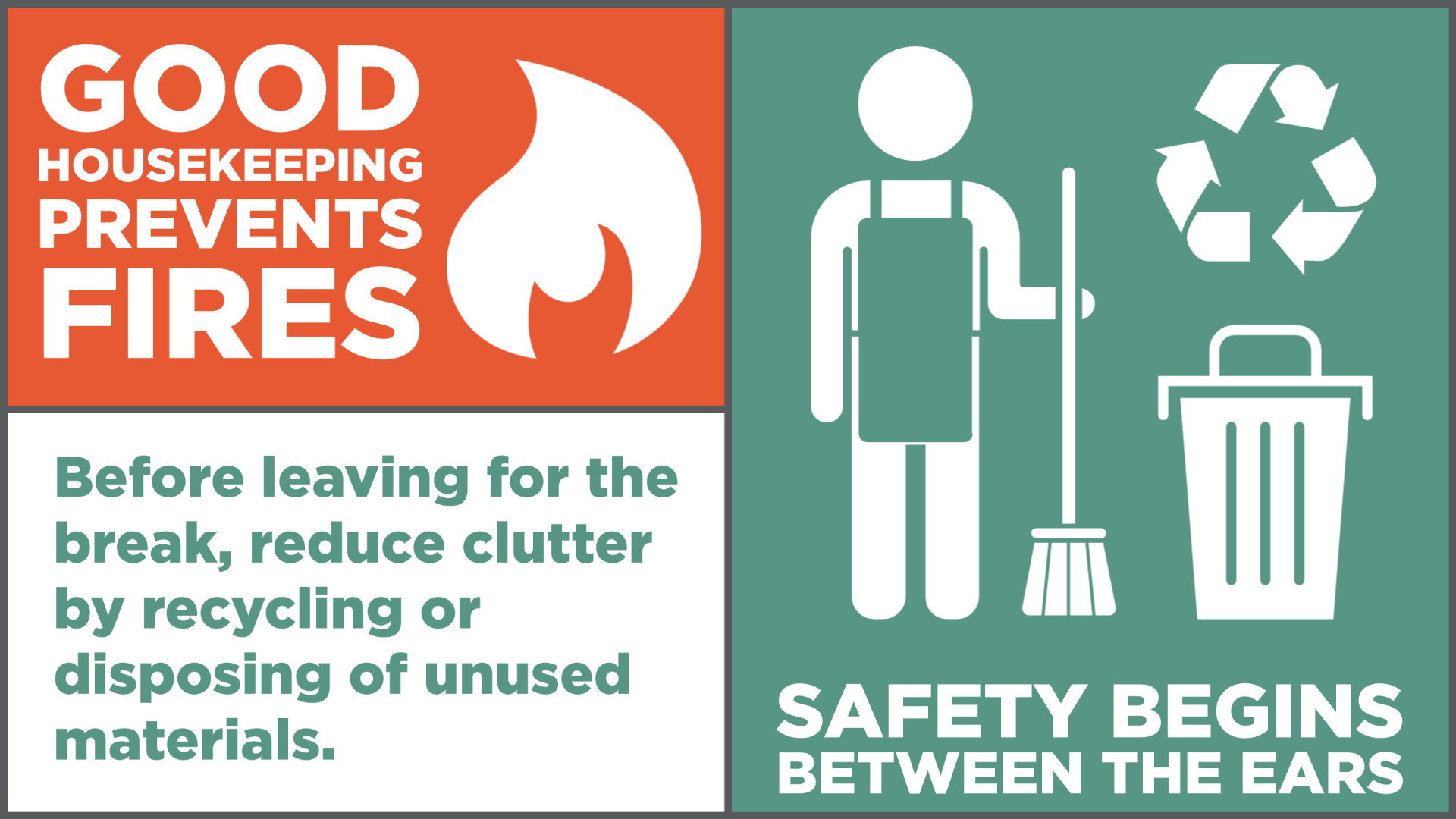 It Could Have Been Much Worse…
It Could Have Been Much Worse…
A recent campus fire, involving an extension cord, serves as a reminder about the importance of extension cord safety, particularly during the holidays. Luckily, no one was injured in the fire, and only minor damage was sustained. Yet, this fire could have been much worse. The fire is still under review, but preliminary findings point to several key factors.
The cord was:
-
- being used as permanent wiring
- in service for an extended amount of time
- bound tightly with zip ties
- covered by or near combustible materials (cardboard)
- was plugged into a power strip (daisy-chaining)
What Can You Do Now?
As we prepare for the holiday break and the end of semester, recognize that our buildings may be unoccupied for an extended period. Now is a great time to unplug items which will not be used to reduce the risk of fire.
Below are a few important tips to help protect our campus from fire:
- Use a cord of sufficient length for your need; avoid excessive cord lengths that can create trip and fire hazards.
- Do not tightly coil or fold cords, as this will restrict energy flow and cause cords to heat up.
- Never cover an extension cord with a rug, debris or other material which could trap heat, hide cord damage, and provide fuel for a fire.
- Good housekeeping removes fuel for a fire. Put away materials that could burn.
- Extension cords are for temporary use only (no greater than 90 days) and shall be unplugged and put away when not in use.
Download and Share EHS Graphics

For additional tips on protecting yourself both on and off campus.
- Unplug ALL appliances and extension cords before leaving for an extended amount of time
- Do not overload extension cords with multiple devices or allow them to run through water.
- Do not run cords through walls, doorways, ceilings, windows, or floors where they could become overheated or pinched.
- Extension cords are for temporary use only; A heavy reliance on extension cords is an indication that you have too few outlets to address your needs. Have additional outlets installed where you need them.
- You should never plug multiple extension cords or power strips together.
- Make sure the extension cord or temporary power strip you use is rated for the products to be plugged into it.
- Ensure only extension cords marked for outdoor use are used outdoors.
- Never use a cord that feels hot.
- Never use a damaged extension cord; This includes visible signs of twisting in the outer insulation or visible inner insulation.
- Never cut off the ground pin to use three-prong plugs with outlets that only have two slots for the plug.
- Buy only cords listed by an independent testing laboratory, such as Underwriters Laboratories (UL).
- Never repair damaged extension cords; they should be destroyed and replaced.
Housekeeping Before the Break
Another quick tip: There is no better time for some good housekeeping than right before a break! Then you can return to a clean and safe environment to work and learn. The first step in workplace organization is to reduce clutter—this starts with proper disposal of debris or other materials— recycle them or place them in trash. Excess debris, especially combustibles such as paper, cardboard, cloth, etc. are a fire hazard. These items can make fire damage much worse than it would have been, cause a fire to grow much quicker than it would have or in the right circumstances, become the catalyst for a fire.
Thank you for your help and enjoy your break!

